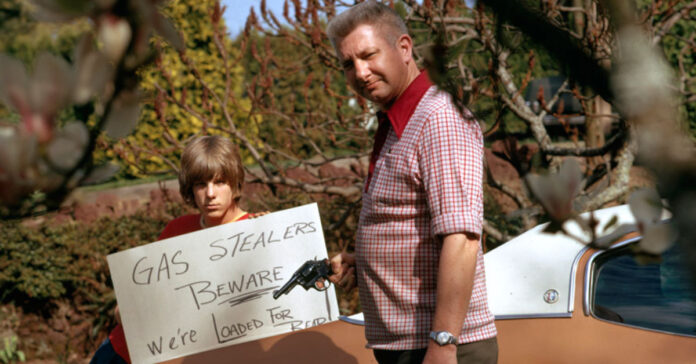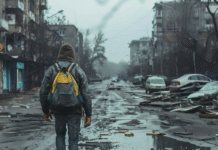I was talking to a friend today, both of us children of the 1960s, and shared remembrances from our childhood that showed the late 1960s and early 1970s were not the easiest of times. Here is a partial list:
- Bombings by what we would call domestic terrorist organizations, including the Weather Underground, Black Panthers and the Puerto Rican group Fuerzas Armadas de Liberacion Nacional.
- Civil rights protests, protests at the 1968 Democratic National Convention, protests against the war in Vietnam and Cambodia, often met with a much more militant police than protestors face these days. This included water cannons, dogs, beatings and, of course, Kent State, where members of the Ohio National Guard fired into the crowd of protestors.
- OPEC issued what became known as The Arab oil embargo in 1973 to punish the U.S. for supporting Israel. The result was gas station lines, gasoline rationing, and lowering the national speed limit to 55. It also led to fuel economy standards and smaller cars, which gave Japanese imports a chance to break into the U.S. market. I remember we had an Oldsmobile and Fords, but by the time I learned to drive, it was in a Toyota.
- Inflation was already bad, but the gasoline shortage made it seem worse. The poor economy lead to my father losing his job. He landed another one, but it wasn’t as good. He was underemployed for a couple years, and we pinched pennies to make ends meet.
- We were in the Middle of the Cold War, of course, with the threat of nuclear war with the Soviet Union loomed over us.
- Politics was a mess, too. The Watergate scandal led to President Nixon resigning, and Ford gave way to Carter. Neither of my parents liked him.
Then and Now
To recap, we had political, social and civil unrest, war, problems in the Middle East, inflation and economic issues, and politicians getting impeached.
Sounds like not much has changed in 50 years, huh?
Maybe it is no surprise that the 1970s were the beginning of the survivalist movement, with people like Howard Ruff and Mel Tappan leading the way on food storage and firearms. Prepping is growing in popularity now for the same reason: fear and uncertainty about our future and a sense that things are getting worse.
After the 1970s, however, things got better.
The Camp David Accords led to a peace treaty between Egypt and Israel. Ronald Reagan’s election resulted in the Iran releasing their hostages. He became a strong president. Under his watch, inflation was finally tamed and the Soviet Union collapsed.
The U.S. experienced a wave of technological advances in the early 1979s. VCRs became prevalent, the compact disc was born, and IBM introduced the personal computer. The PC revolutionized the workplace, increasing efficiency. While it was disruptive, computer technology helped the economy improve and the markets responded. Will history repeat itself with AI?
In the 1980s, the S&P 500 was up nine out of ten years, including eight in a row. It was up eight out of ten years in the 1990s, making the two decades a great time for Americans to build wealth.
American was back, baby.
Can we do it Again?
Things have been bad before and we recovered and came back stronger. We could repeat this kind of recovery. We could bounce back from the bad times.
I think it’s possible, but I don’t think it will happen in 2024. This time, I think it will take more than a presidential election to reverse our fall. In fact, we may have to fall further before we can get back up.
Our job as preppers is to be prepared to survive that fall, the collapse that precedes our recovery. Our task is to be ready so our families suffer minimal disruption during the dark years. If you do this successfully, you could be part of the recovery or emerge from it in a stronger position than you are in today.
So I come to you in early 2024 with bad news: Things will get worse.
But there is some good news: we will recover. One day.
I also bring a recommendation: prepare so that you can bridge that gap, regardless of how long it may be.
Be prepared for economic collapse, social upheaval, supply chain disruptions, war, political disruption, riots and protests. Be prepared for blood in the streets and the financial markets. Get prepared for things to grow worse, perhaps even worse than you expect. And then, be prepared to find your way back, to emerge strong, and to not let things get this bad again. Have hope for the future, but be prepared for it to be a difficult journey.







